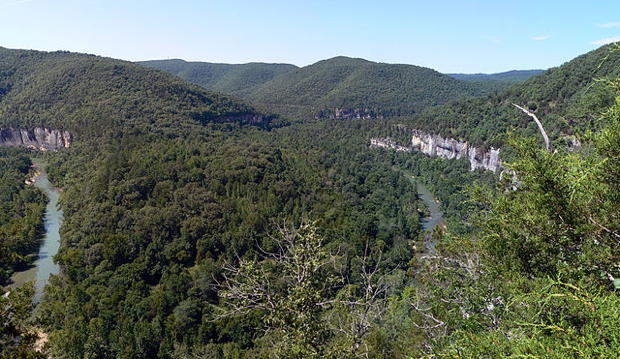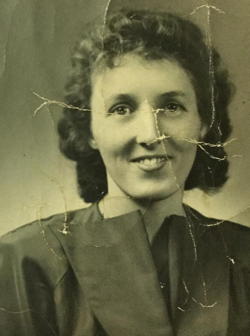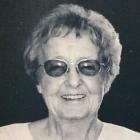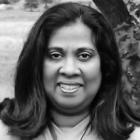Beverly, on behalf of Women in the Academy and Professions, a very warm welcome and thank you so much for agreeing to this interview. Will you share a little bit about yourself and how you came to know Christ?
I came to know Christ when I was a little girl. The first time I accepted the Lord as my Savior, I was attending a one-room church house and there was a lady pastor. She gave the invitation. I was with my mother and father and I did not go to the altar, but she came to me and she asked me what I wanted. I said, “I want Jesus to come into my heart.” That was the first time, but I did this several times as a little girl. When I was ten years old the Lord really met me when I was attending a youth rally, and I knew that I was in the family of God.
How did you discern a call to plant and pastor churches?
After that, the Lord began working and my life, and I told the Lord I would do whatever he wanted me to do. I went to Nyack Training Institute (now Nyack College). As I graduated in 1949, a district superintendent in the Christian and Missionary Alliance came to Nyack and told us about the Ozark Mountains of Arkansas. That is where I felt God was wanting me to go after I graduated from Nyack. I went to a place called Fort Douglas. There we had many opportunities to find people that were hungry for the Lord. From there, I went to Meridale, New York and there I really was a part of ministering to people. I spoke every Sunday and had a wonderful, wonderful congregation of people.

I'd like to ask some more about your work as a pastor. Could you list some of your duties as a pastor?
I did a little bit of everything I guess. I called in homes. I was a speaker on Sunday morning and on Sunday night. We had prayer meeting at night on Wednesdays. I led the youth group and saw people coming to the Lord.
I had many, many experiences. When I worked in the Ozark mountains I was young, I was alone, and I traveled dirt roads that were not passable and probably shouldn't have been on. When I first arrived in Fort Douglas, I was roommates with another woman. We worked together and took turns speaking in the church house. The people in Fort Douglas were mountain people. They loved us and we loved them. At times we had to learn what to say and how to approach them, and to be loving and kind. No matter where you are, people want to be loved. When people are loved, their hearts become soft and the Lord works in them.
Did you officiate at weddings, funerals or baptisms?
I did not do weddings and funerals. I almost did a funeral once, but it was at the same time as Council was convening in Canada.
How did you experience leading a congregation as a woman? What were the particular joys and challenges?
I will say there were challenges sometimes. I don't think anyone in ministry doesn't have challenges. Sometimes there are certain people who have different personalities, and there are people who are really not receptive to the gospel. But, I felt in my speaking that I loved the people wherever I was. They were wonderful to me in all of my experiences. I just felt that there were times when I knew that people were coming to Christ — young people coming to the Lord, some middle-aged people coming to the Lord, all kinds of people came to the Lord.
It wasn't always easy. The Ozark Mountains was a very difficult area, but I loved the people. They were wonderful people. In Meridale at that particular time, one of the problems was the town itself. People who did not attend the church were somewhat resentful of our being there at first. But we found that all those things began to break down, and we saw God do some wonderful things.
I loved seeing people come to the Lord. I had an experience more recently of coming home one day and finding a person in my yard, sitting patiently in his car, waiting to see me. I went over and the man said to me, “I've been looking for you. I've been looking for you a long time. I didn't know where you were but I wanted you to know that through your ministry in Meridale I found Jesus Christ. Not only have I found him, but my wife has found him, and my children.”
You trained to be a pastor — you went to Nyack, you were a pastor when you were younger, and then you weren't after that. What was your reason to not continue as a pastor?
After I served for a few years, God brought a young man into my life and I married. We were in the process of raising our family but I continued working in the Christian Missionary Alliance churches wherever I was and in my own home.
I hosted a Pioneer Girls group every Wednesday; I had probably 25 to 30 girls come to my home and we had a ministry with them. We had a ministry in the town where I lived. We were able to visit many homes. I had a mandolin and I used to take my mandolin and go out with another friend. We would sing and share the word and some of those people came to the Lord.
What words of encouragement can you offer to women who are called to ministry but whose choices are limited in some church cultures? How would you encourage women who feel a call now like you did all those years ago?
If you feel God is calling you, you follow the call of God and he will open up doors for you. He will do for you what no one else can do. He will give you wisdom. Ask for wisdom and guidance. I believe in the power of the precious Holy Spirit. I believe that when God is in it, we have nothing to be afraid of. When God is in it, he will be faithful and he will do things that are just impossible. With God all things are possible. I would encourage those who are feeling the call of God to listen to God, not man.



 Very often when we hear stories of evangelism and church planting, we hear the stories of men. But, as we dig into history, we find stories of women following God’s calling to preach the good news. Our WAP colleague Jasmine Obeyesekere Fernando heard about Bev’s story, and went out to find her. We share it with you as a witness to how women have served God in different times and circumstances — even those which kept women from the most formal ministry roles.
Very often when we hear stories of evangelism and church planting, we hear the stories of men. But, as we dig into history, we find stories of women following God’s calling to preach the good news. Our WAP colleague Jasmine Obeyesekere Fernando heard about Bev’s story, and went out to find her. We share it with you as a witness to how women have served God in different times and circumstances — even those which kept women from the most formal ministry roles.

